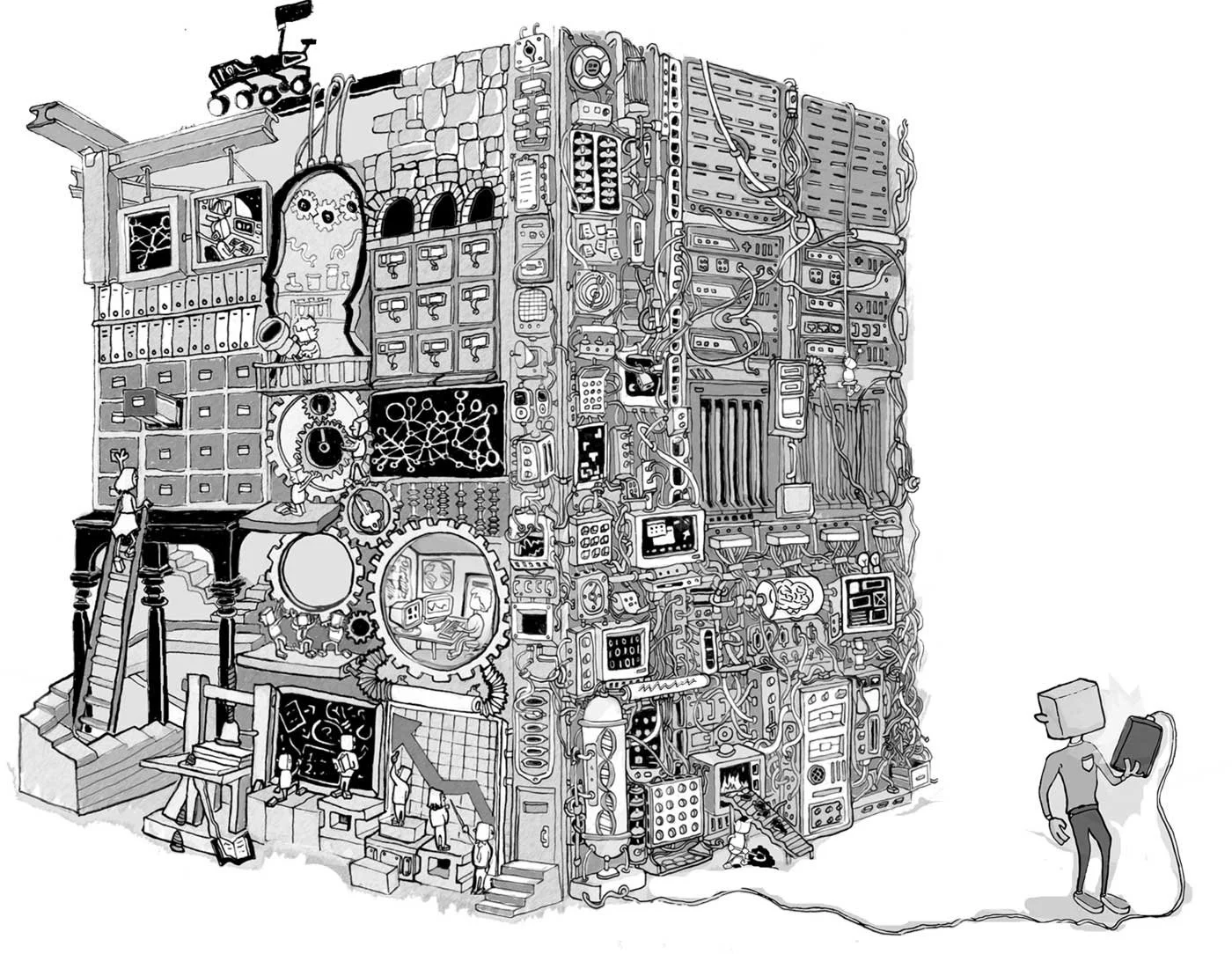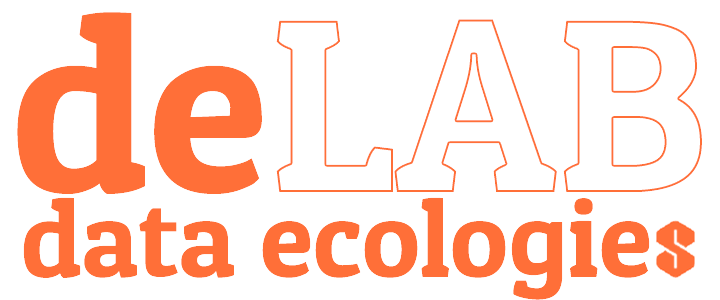Caption: This image captures the ‘relational’ properties of infrastructure: you can see a figure on the bottom right focused on their work but with their back turned to the infrastructure that makes it possible. Infrastructure always enables and obscures, both at once.
My partner Jake Fagan drew this image for the
NSF Knowledge Infrastructures Report.
Look for all the STS easter eggs!
What is my Research?
I inhabit the interdisciplinary intersections of Science and Technology Studies (STS) and Information Science:
I focus on research infrastructures: the organizations that support science and scholarship.
I am interested in the long-term: years to decades to centuries.
I explore novel methods at the intersection of ethnography, historicism and digital-archival investigations.
A fairly accessible PODCAST, featuring yours truly, focused on ‘Research infrastructure and the long-now’
Research Themes
Technical work as a social process (or 'sociotechnical' for short). Invention and innovation are accomplished in practice. Infrastructure demands maintenance and renewal. ‘Technical’ is not the opposite of ‘social’ — you can’t have one without the other.
Transformations in knowledge work. How we know (epistemology) is in constant transformation. Sometimes I focus on high-tech transformations, like data interoperation, but even low-tech stuff is pretty fascinating, like circulating specimens of blood, or barcodes.
Ontological emergence. Ontology is a heavy philosophical word — it means ‘theory of reality’ — but one can’t understand science and technology without engaging ontology: what new things are there, and which old ones no longer exist?
Organizational and technological sustainability. How to build and sustain for the long term? Whether that means organizationally, environmentally, or both, its an important focus today.
The institutions of science. Science is an institution — like the post office, or marriage — and so science too is tied to the nation-state, policy, law, funding, and so on. And, there are a lot of norms and disputes involved. Ultimately, science is quite fragile, demanding care.
New organizational forms. Shifting technologies are always coupled to shifting organizational forms, technology must be ‘done’ and ‘lived’ with human eyes and hands.
The role of social scientists in design. Primarily I like to study large-scale and long-term infrastructures, but sometimes I participate in making them. What social scientific insights do we have to bring to bear?
Why do I say I’m a
‘phenomenotechnical thinker’?
It’s a word drawn from the philosophy of Gaston Bachelard. He used it almost as a synonym for instrumentation in science, to always remind that the phenomena of the sciences are highly technically intermediated (like ‘quarks/colliders’ or ‘population/census’).
I use phenomenotechnical when I want to push a little harder than just saying ‘sociotechnical’. Sociotechnical is also a portmanteau (social/technical), and it is also supposed to indicate that the two things can’t be fully pulled apart.
But sometimes I worry that while the term sociotechnical emphasizes humans and technology, it tends to forget about nature, phenomena, and mediation (and all that), and so phenomenotechnical helps with that.


